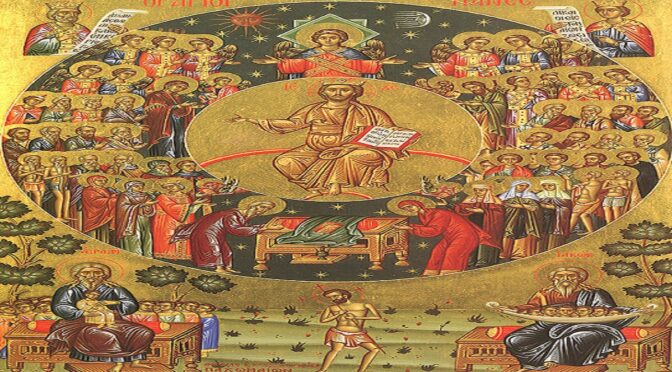Contents
Introduction
The commemorations of martyrs, common to several churches, began to be celebrated in the IV century. The first traces of a general celebration are abutted to Antioch, and they refer to the Sunday after Pentecost. This custom is also mentioned in 74th homily of John Chrysostom (407) and preserved till date by the Orthodox Church of the East. The date of the holiday was moved to 1st November to coincide with Samhain, the ancient feast of the Celtic new year as a result of requests to this effect from the Irish monastic world. Pope Gregory III (731−741) chose
The great Tribulation
Like every human phenomenon, even the feast we are celebrating today has undergone series of metamorphosis. Initially, it was a commemoration of all the martyrs. That is, victims of persecution (the martyrs were those who never wanted to be killed but who unfortunately were killed simply because they were Christians, not those who made every effort to ensure they were killed). Today in our contemporary age, we now celebrate popular personalities, a tendency that has largely obscured the original reason for the celebration, relegating it to the background. The year of faith is a call to metánoia. Therefore, we have to go back and re-discover the reason behind this feast and keep to it. As the seventh chapter of the book of Revelation (first reading) indicates, referring to the uncountable and great multitude arriving from every corner of the universe.……
Matthew 5:1–12 belongs to the second classification. The Greek term maka,rio~ means, blessed, fortunate, happy in the sense of the privileged recipient of divine favour. In this case, it means blessed is one who…. Although kardia could mean heart as the seat of physical life, in the Matthean context, it should be understood figuratively as in the sense of interior or center and source of inner life. Hence, it is the profundity of Man’s beingness. This interiorness is not only the seat of sentiments, but also the seat of intelligence and will. As seat of intelligence, the heart allows the individual to understand what he/she appreciates. Contrarily, when a person refuses to comprehend the true sense of things or events, the Bible qualifies such person as having hardened his/her heart. The psalmist warned: If today you hear God’s voice, harden not your heart (cf. Ps 95:8). Still on this, Mark (10:5) in replying to the Pharisees on the issue of marriage and divorce, explained to them that it was due to their sklerokardia (hard heart; hardness of heart; hardened heart) that Moses allowed them to do as they wished. The book of Qohelet tells us that God gave Man heart to reflect, and the Psalms speak of “thoughts of the heart.” Hence.……

